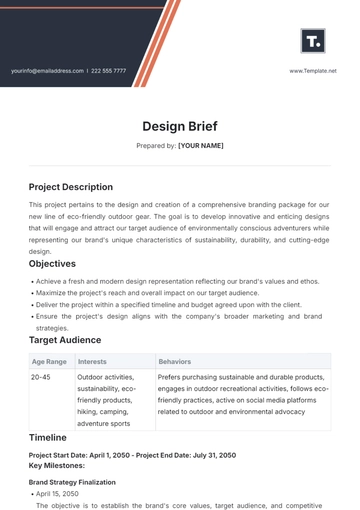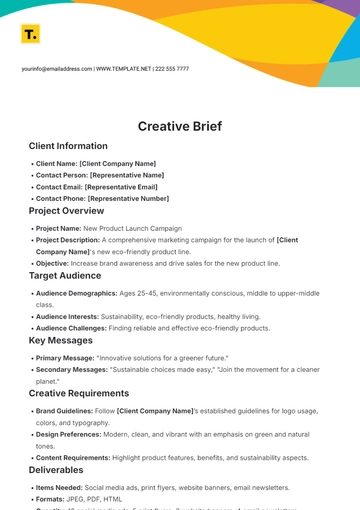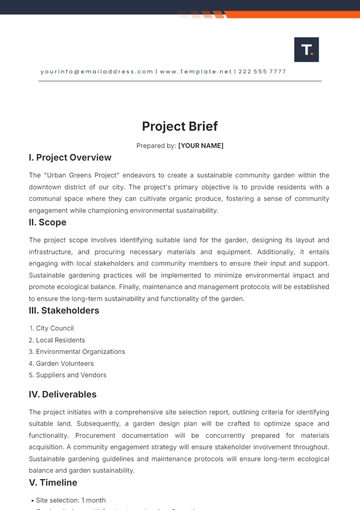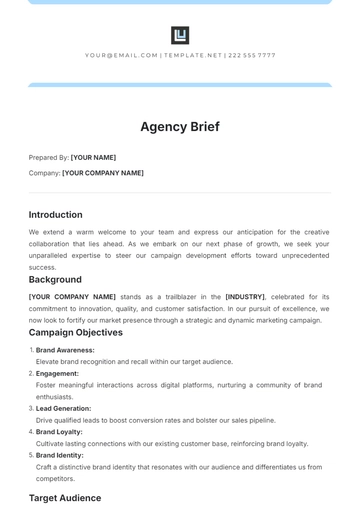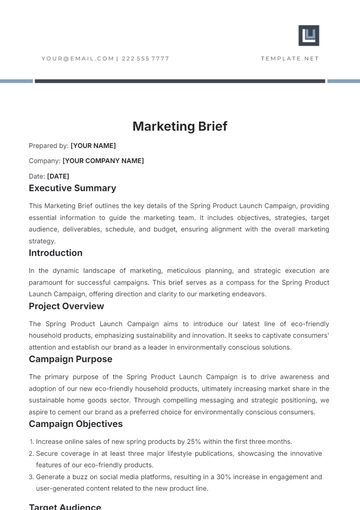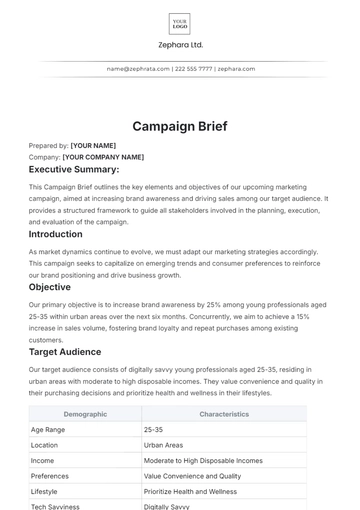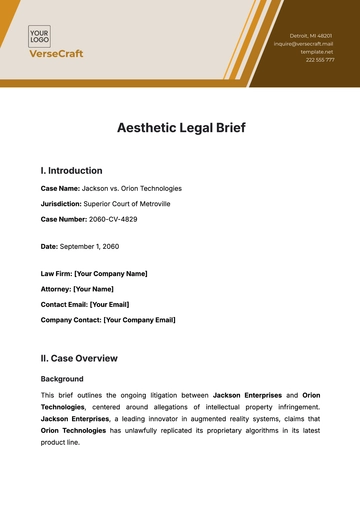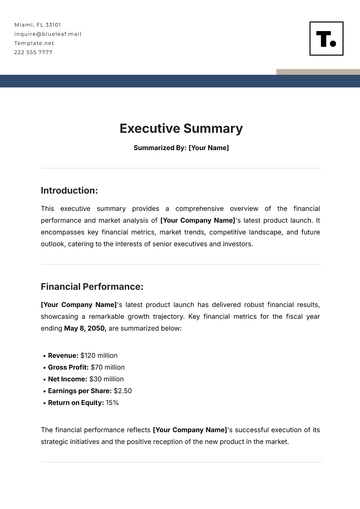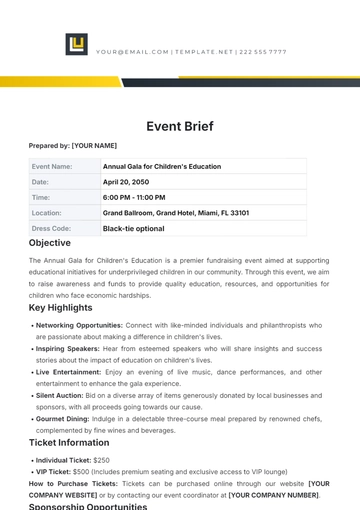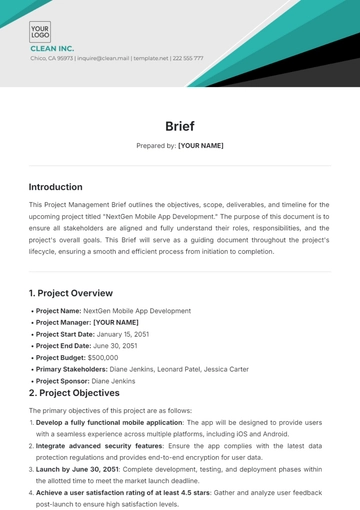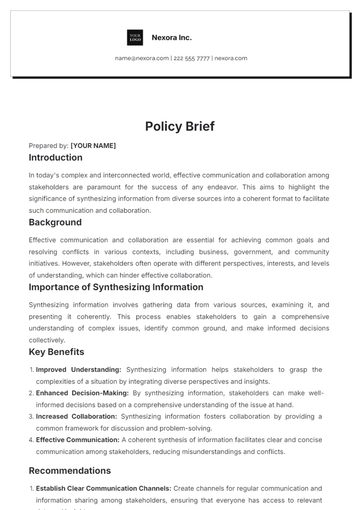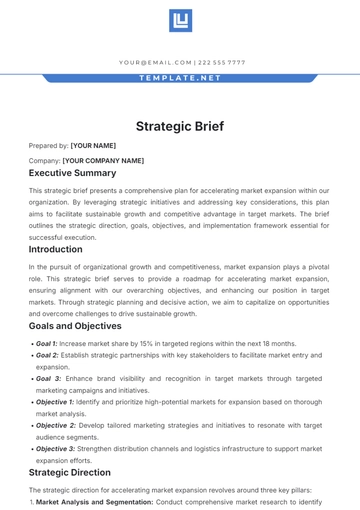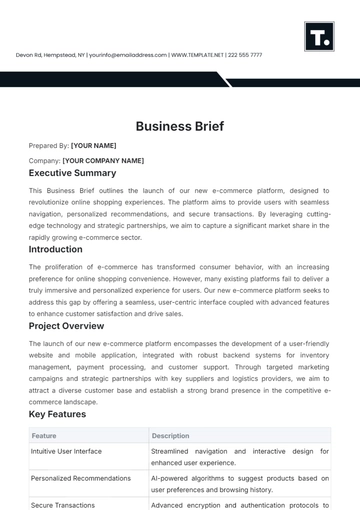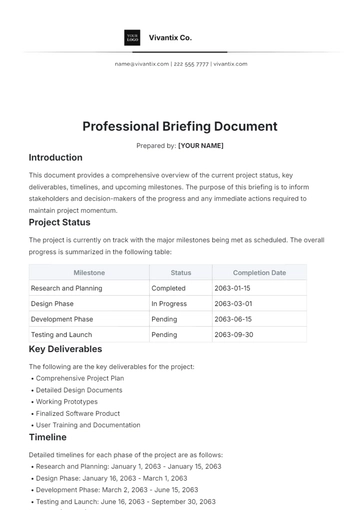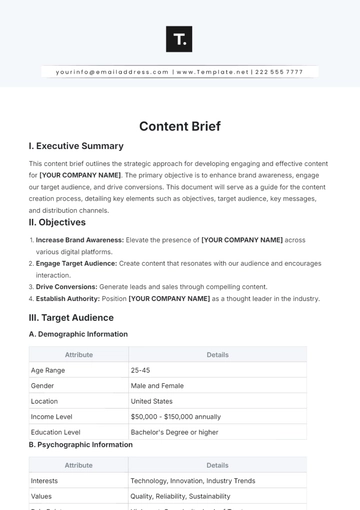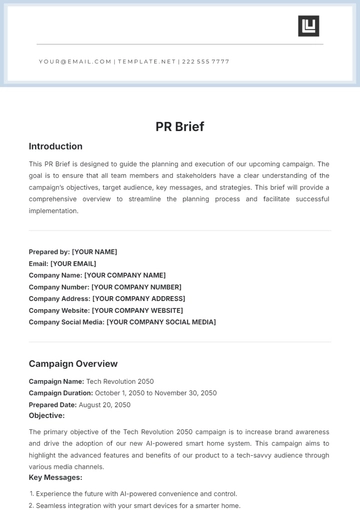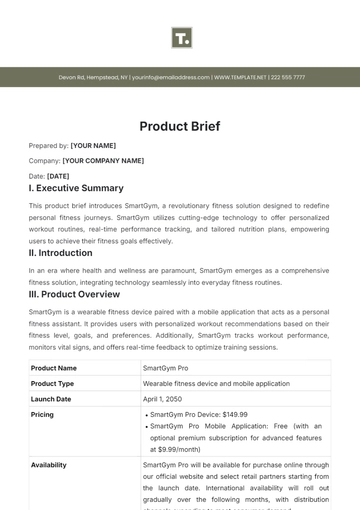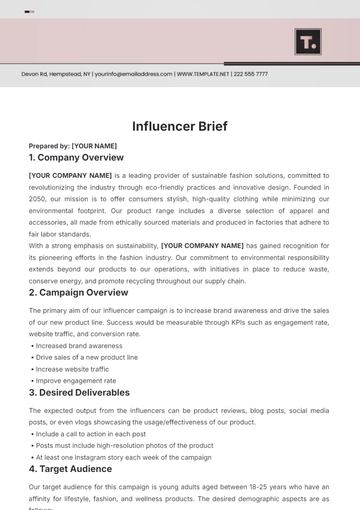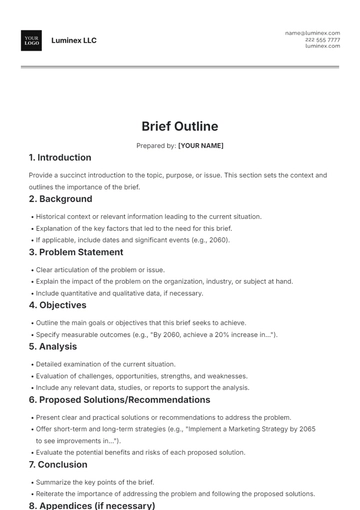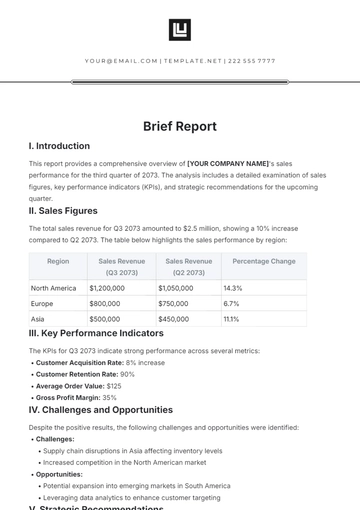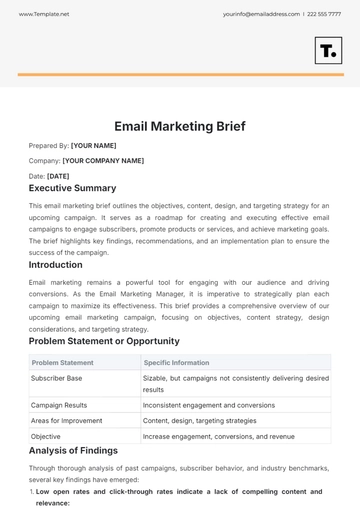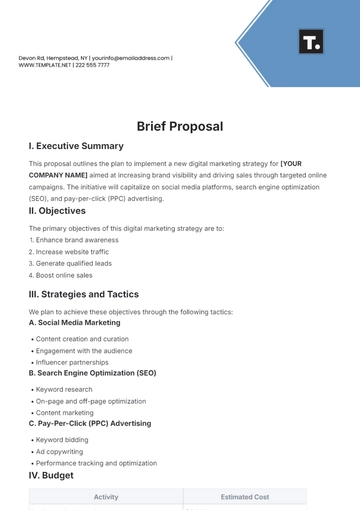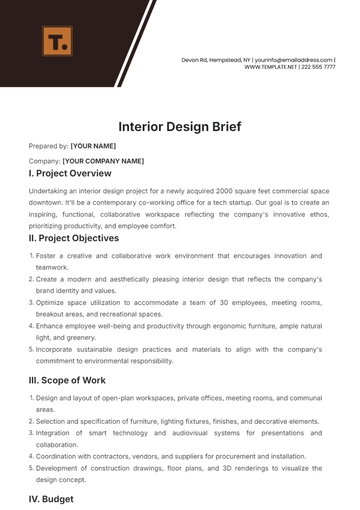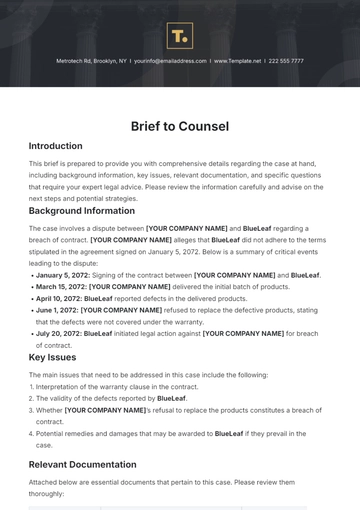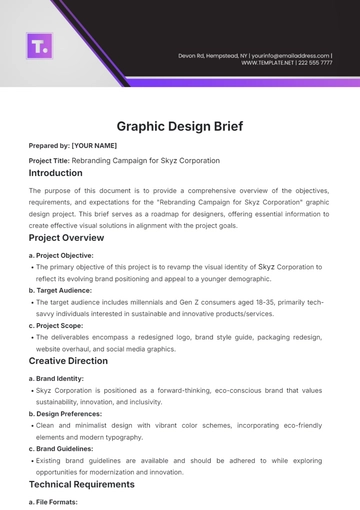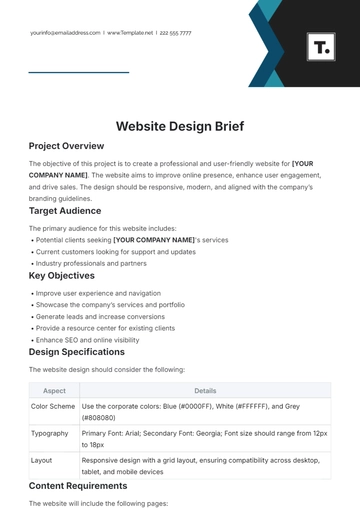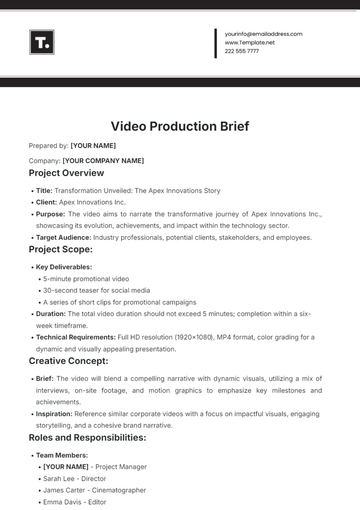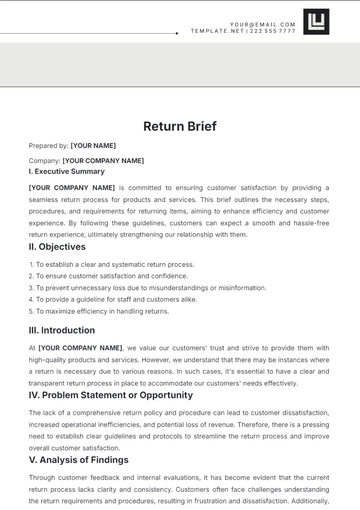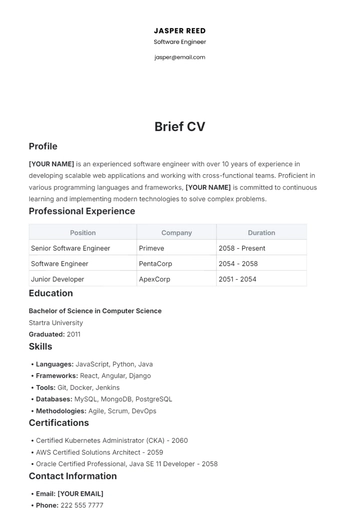Free Education Brief
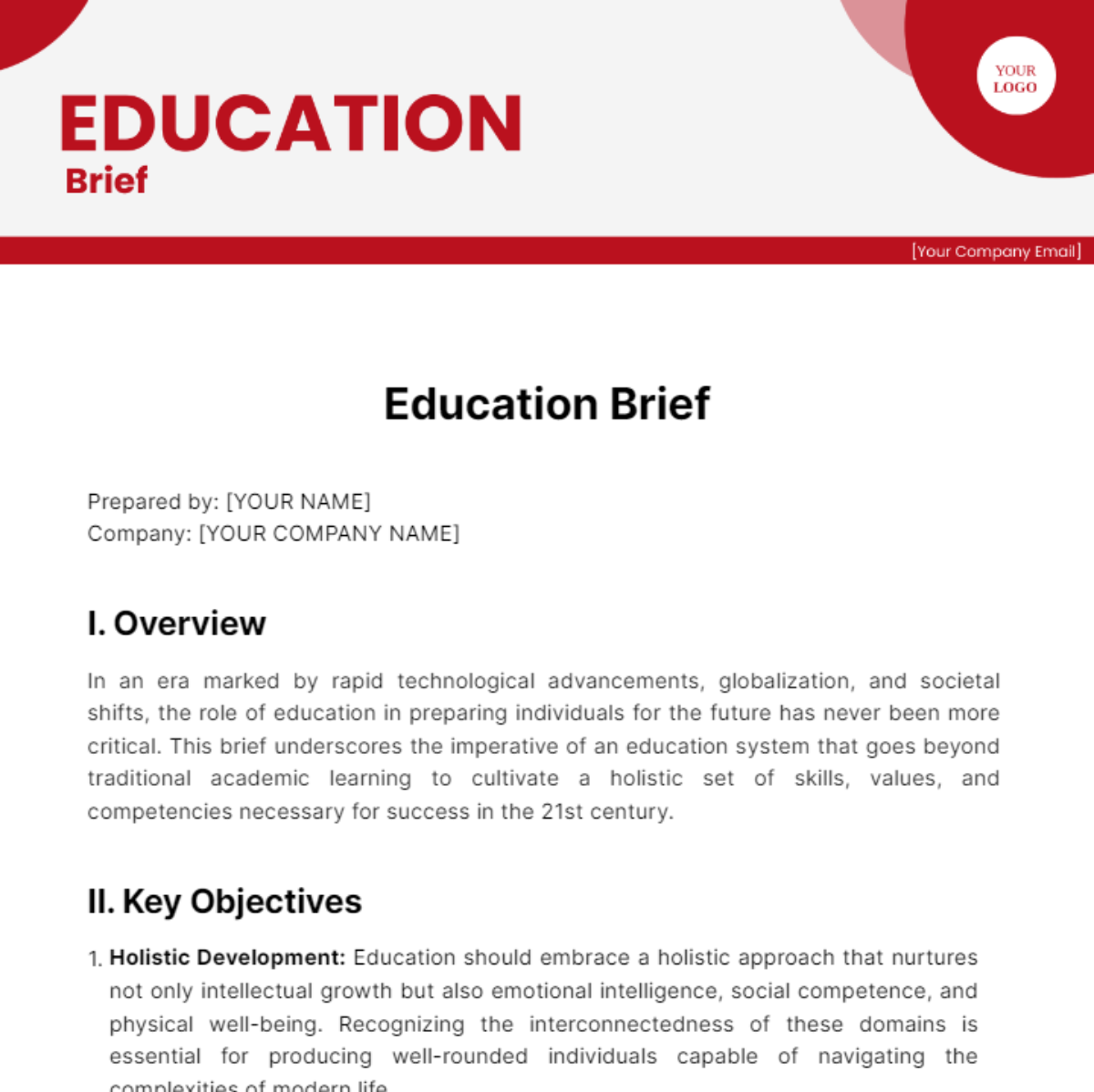
Prepared by: [YOUR NAME]
Company: [YOUR COMPANY NAME]
I. Overview
In an era marked by rapid technological advancements, globalization, and societal shifts, the role of education in preparing individuals for the future has never been more critical. This brief underscores the imperative of an education system that goes beyond traditional academic learning to cultivate a holistic set of skills, values, and competencies necessary for success in the 21st century.
II. Key Objectives
Holistic Development: Education should embrace a holistic approach that nurtures not only intellectual growth but also emotional intelligence, social competence, and physical well-being. Recognizing the interconnectedness of these domains is essential for producing well-rounded individuals capable of navigating the complexities of modern life.
21st Century Skills: The curriculum must prioritize the development of essential 21st-century skills such as critical thinking, creativity, communication, collaboration, and problem-solving. These competencies are indispensable for adapting to rapidly changing environments, solving complex problems, and thriving in the digital age.
Personalized Learning: Acknowledging the diverse learning needs and preferences of students, personalized learning approaches should be adopted to cater to individual strengths, interests, and pace of learning. By tailoring instruction to meet the unique requirements of each student, education can become more engaging, relevant, and effective.
Technological Integration: Technology should be seamlessly integrated into the learning process to enhance engagement, facilitate access to information, and promote digital literacy. Embracing educational technologies empowers students to leverage digital tools for research, collaboration, creativity, and innovation, preparing them for success in an increasingly digital world.
Cultural Competence: In an interconnected global society, fostering cultural competence and appreciation for diversity is paramount. Education should promote understanding, respect, and empathy across cultures, equipping students with the skills to navigate multicultural environments and contribute positively to a diverse world.
Global Citizenship: Educating students to become responsible global citizens entails instilling values of empathy, compassion, social responsibility, and environmental stewardship. By fostering a sense of interconnectedness and a commitment to making a positive impact on local and global communities, education can empower individuals to address pressing global challenges and work towards a more sustainable and equitable world.
Sustainability Education: Given the urgent need to address environmental issues and promote sustainability, education should incorporate principles of environmental conservation, ecological awareness, and sustainable living into the curriculum. By nurturing environmental consciousness and empowering students to become advocates for sustainability, education can play a pivotal role in shaping a more sustainable future.
Lifelong Learning: Cultivating a culture of lifelong learning is essential for fostering continuous personal and professional growth. Education should instill a love for learning, a growth mindset, and the skills necessary to adapt to evolving challenges and opportunities throughout life, enabling individuals to thrive in an ever-changing world.
III. Implementation Strategies
Curriculum Design: Develop a dynamic and interdisciplinary curriculum that integrates the key objectives outlined above, providing students with meaningful learning experiences that prepare them for future success.
Teacher Training and Professional Development: Provide ongoing training and professional development opportunities for educators to enhance their pedagogical skills, incorporate innovative teaching practices, and support diverse student needs effectively.
Technology Integration and Infrastructure: Invest in robust technology infrastructure and resources to support digital learning initiatives, ensuring equitable access to technology and promoting digital literacy among students and educators.
Community Engagement: Foster partnerships with parents, community organizations, businesses, and other stakeholders to enrich educational experiences, provide students with real-world learning opportunities, and promote community involvement in education.
Assessment and Evaluation: Implement a balanced assessment system that measures not only academic achievement but also growth in 21st-century skills, holistic development, and personal competencies, providing meaningful feedback to students and informing instructional practices.
Policy Advocacy: Advocate for policies that prioritize education reform, allocate adequate funding, and create supportive environments for innovative teaching and learning practices, ensuring that education remains a top priority for societal advancement.
IV. Conclusion
By embracing a comprehensive approach to education that prioritizes holistic development, 21st-century skills, personalized learning, cultural competence, global citizenship, sustainability education, and lifelong learning, we can build a foundation for tomorrow's leaders to thrive in an increasingly complex and interconnected world. Through concerted efforts in curriculum design, teacher training, technology integration, community engagement, assessment, and policy advocacy, we can transform education into a powerful force for personal growth, societal progress, and global change.
- 100% Customizable, free editor
- Access 1 Million+ Templates, photo’s & graphics
- Download or share as a template
- Click and replace photos, graphics, text, backgrounds
- Resize, crop, AI write & more
- Access advanced editor
Discover the Education Brief Template, your essential tool for educators and administrators, exclusively from Template.net. This editable and customizable template offers versatility and convenience, ensuring your briefs are tailored to perfection. Crafted for educators' needs, it's seamlessly editable in our Ai Editor Tool, guaranteeing precision and professionalism. Elevate your educational endeavors with this user-friendly solution.
